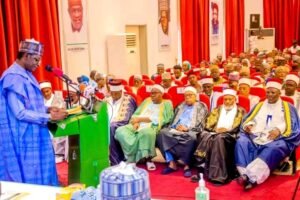
Acknowledging the transformative power of artificial intelligence (AI) in shaping the future of global economies, BRICS leaders have called for the establishment of a governance framework that ensures equitable access to AI technologies. The leaders endorsed a unified set of principles aimed at promoting the responsible development and use of AI to support sustainable progress and inclusive economic growth.
The leaders of the BRICS nations – Brazil, Russia, India, China and South Africa, in a joint statement, called for a global governance framework for AI that is inclusive, representative and rooted in the principles of sovereignty, development and ethical responsibility.
Rising from the just concluded BRICS summit in Rio de Janeiro in Brazil, the leaders in the guidelines, which strictly refer to the use of AI in the non-military domain, said it should be applied through either domestic or applicable international frameworks, as well as through the development of interoperable standards and protocols, in inclusive, transparent and consensus-based processes, the statement reads.
For emphasis, BRICS is a political and diplomatic coordination forum for countries from the Global South. This year’s theme was “Strengthening global south cooperation for more inclusive and sustainable governance”.
According to these leaders, who see AI as a transformative force for sustainable development and innovation, also warned against uncoordinated governance models that could deepen global inequities, marginalise developing nations and fracture multilateralism.
They emphasised that AI governance should be anchored in the United Nations system to ensure inclusivity and legitimacy.
The BRICS countries warned against a fragmented regulatory landscape, advocating for coordinated multilateralism that includes the voices of developing countries – particularly from the Global South.
The leaders reaffirmed their support for Digital sovereignty, saying each country must retain the right to shape AI policy and technology in line with its own development goals and legal frameworks. This includes capacity-building, data governance and technological autonomy.
“We firmly support the right of all countries to harness the benefits of the digital economy… to develop capacities in AI research, foster technological autonomy and innovation, ensure data protection, and promote their digital economy,” the statement reads.
A major theme in the document is the need for fair, equitable and inclusive access to AI technologies. The BRICS leaders stressed that all countries – regardless of economic standing – must be able to access and benefit from AI.
The group also called for global cooperation in building data governance frameworks that allow developing countries secure and equitable access to data, with full respect for privacy, intellectual property rights and national laws. This ties into support for open science, open innovation and open-source AI models that can fuel local innovation ecosystems.








